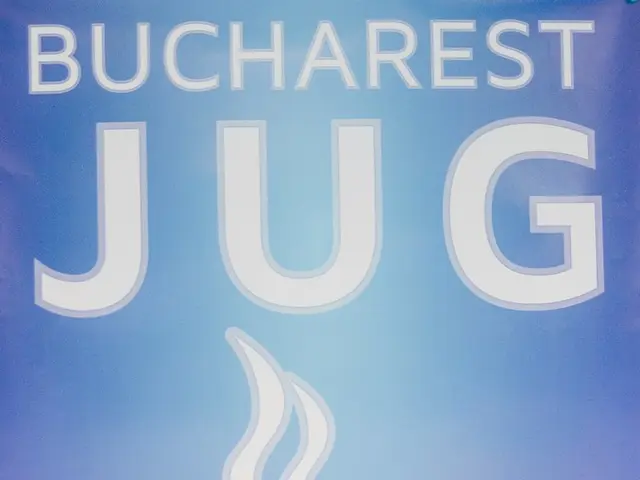Revised Music Copyright Regulations Alter Digital Royalties and Copyright Privileges for Tunes
The music industry is set for a significant shift with the introduction of the NO FAKES Act, a new piece of legislation that aims to improve the matching of recordings to rights holders and establish a federal recognition for digital replica rights. This landmark law was described by UCLA Music Industry Professor Don Franzen as "pretty important" and "pretty huge" in a discussion with Pacific Standard.
One of the key changes brought about by the NO FAKES Act is the creation of a new collective responsible for holding unclaimed royalties for at least three years. The purpose of this collective is to identify and pay out royalties to the rightful rights holders who have not been paid. The legislation is designed to return money to rights holders who should have been receiving payments for some time.
The NO FAKES Act represents a hybrid of trademark and copyright concepts, with living artists able to license their digital likenesses for up to ten years, and estates or heirs permitted to assign these rights post-mortem, with protections lasting up to 70 years after death or the duration of exploitation. This new property right will be managed through a registry maintained by the U.S. Copyright Office.
Regarding royalties distribution and impacts on the music industry, including streaming platforms such as Spotify, the NO FAKES Act acknowledges and potentially monetizes previously unlicensed digital likeness rights, adding a new revenue stream to rights holders beyond traditional composition and recording royalties. However, the direct effects on Spotify's royalty distribution and licensing strategies are not detailed in the results.
Industry trends suggest that large streaming platforms like Spotify are increasingly interested in simplifying rights clearance through centralized or blanket licensing systems to efficiently manage royalties for streaming millions of tracks. Such systems enable platforms to pay rights holders more promptly and transparently by aggregating licenses in one place. The NO FAKES Act's centralized licensing system, centralized database, and new collective are expected to facilitate these changes, potentially accelerating the adoption of centralized licensing solutions in the music industry.
Music copyright protection continues automatically once fixed in a tangible medium, but formal registration remains essential to enforce rights legally and claim royalties or damages. Rights holders and platforms track usage meticulously to ensure royalties from all revenue streams, including streaming, sync licensing, and now potentially digital replica rights, align with new legal standards and technological capabilities.
Although AI and other digital advances complicate rights management, legislative developments like the NO FAKES Act show Congress’s intent to update laws for modern digital realities, which likely influences how royalties related to new types of rights (such as digital replicas) are distributed. However, it's important to note that the new legislation does not address the issue of low pay rates for streaming.
In conclusion, the NO FAKES Act marks a significant evolution in music copyright law by establishing federal recognition for digital replica rights, which may increase earnings for rights holders. While direct effects on Spotify’s royalty distribution and licensing strategies are not detailed in the results, the law implies greater complexity in rights management that might accelerate adoption of centralized licensing solutions in the music industry to streamline royalty payments.
The NO FAKES Act could potentially open up new revenue streams for music rights holders, as it acknowledges and monetizes previously unlicensed digital likeness rights. This expansion of revenues could extend beyond traditional composition and recording royalties.
The NO FAKES Act, with its centralized licensing system, centralized database, and new collective, may facilitatate changes in the music industry, potentially accelerating the adoption of centralized licensing solutions like those being sought by large streaming platforms such as Spotify.




